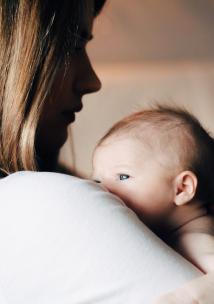Maybe, baby: perceptions of preconception care in Milton Keynes

Around one in three women become pregnant within a month of trying, which means there is very little time for the conversation about pre-pregnancy health to be had, let alone for people to reap the benefits that the information could provide.
The BLMK ICB Women’s Health Lead, alongside a small project team developed the preconception care project to raise awareness of preconception care and improve access to preconception advice for all women and birthing people of reproductive age across BLMK. The project aimed to implement a range of interventions that would raise the profile of preconception care and advice, where to signpost or refer for support and provide education and training for healthcare professionals across BLMK so they are supported to have these conversations.
We know that:
- Preconception advice is not routinely offered or available or considered when planning for pregnancy.
- The point at which women and birthing people access antenatal care varies, with some accessing services quite late in pregnancy (post 10-12 weeks).
- This has an impact on health outcomes for women/birthing people and babies, particularly those from Black, Asian, diverse ethnic and deprived backgrounds.
What did we do?
- We developed a website hub devoted to pre-pregnancy health advice.
- We took advantage of the Women’s Health Lead, and the Consultant Obstetrician’s passion for the project and they attended the Well Women event held at the MK Hindu Association.
- We held an event for parents at a local primary school, had conversations with people at the Community Larders, and included preconception health in presentations to our local Patient Participation Groups (PPG).
- We ran a survey in conjunction with Maternity:MK and we're working with the manager of the Milton Keynes recovery College to include a preconception health course on one of their upcoming timetables.
What did we find?
- Only 20% of women who said they were NOT pregnant or trying to get pregnant were using any form of contraceptive (including ‘withdrawal’ or ‘natural’ methods).
- Almost 80% took dietary supplements whilst thinking about getting pregnant. Although this was largely only Folic Acid.
- 20% of women said they had received advice from a healthcare professional as part of their pregnancy planning. These respondents generally had pre-existing gynae issues/ mental health issues or had already experienced a pregnancy loss.
Read the full report
Image: Hollie Santos, Unsplash
